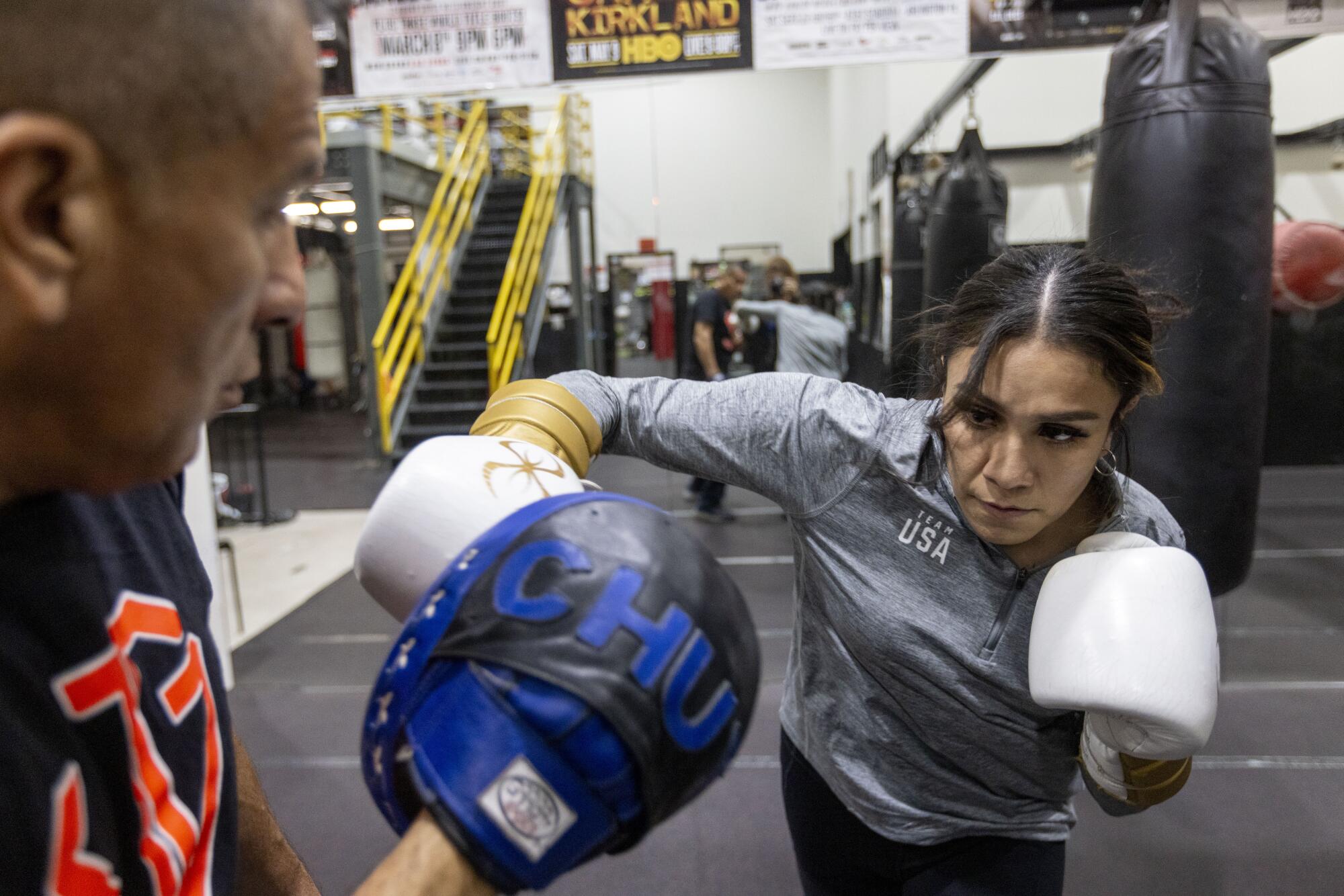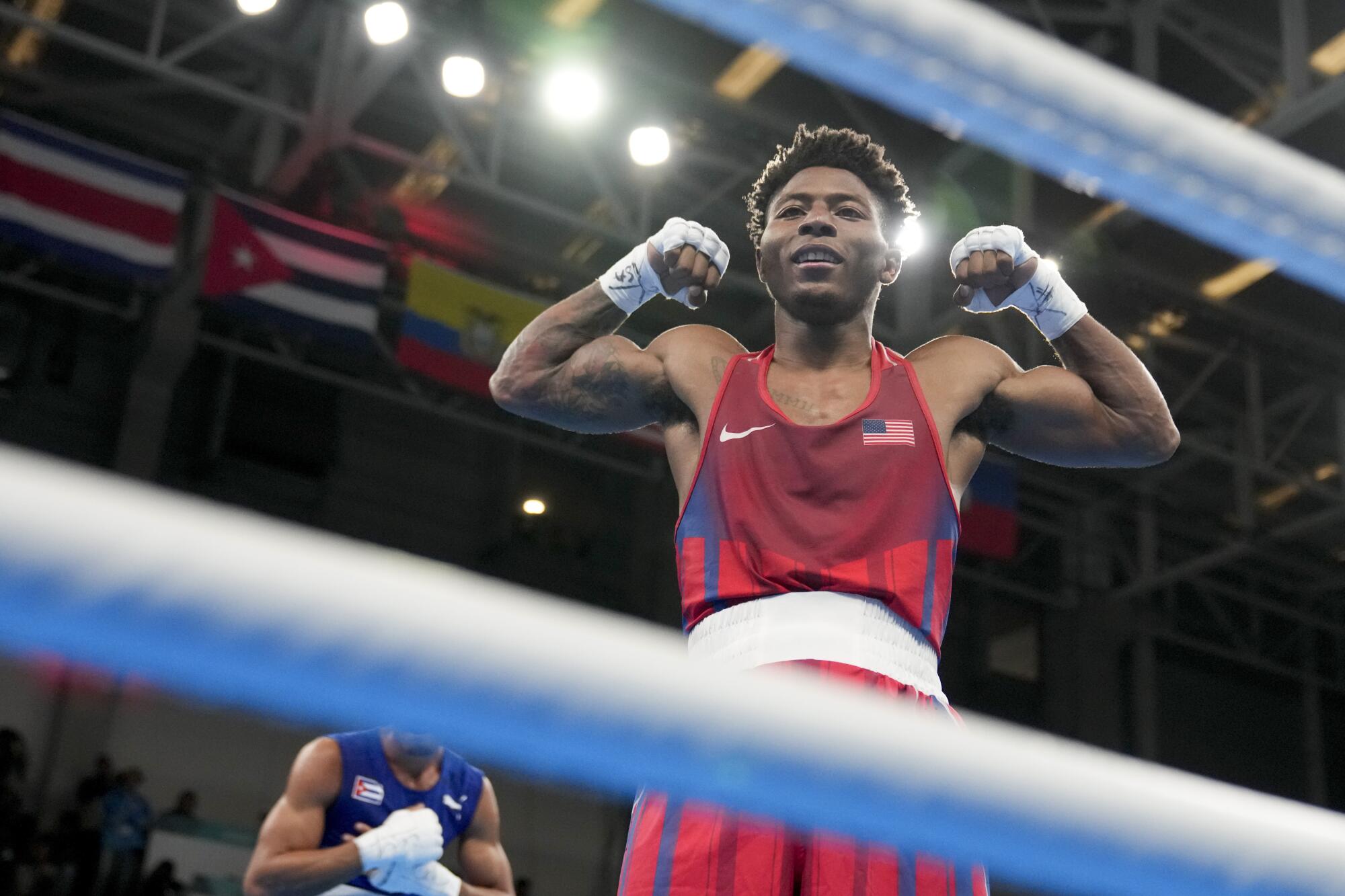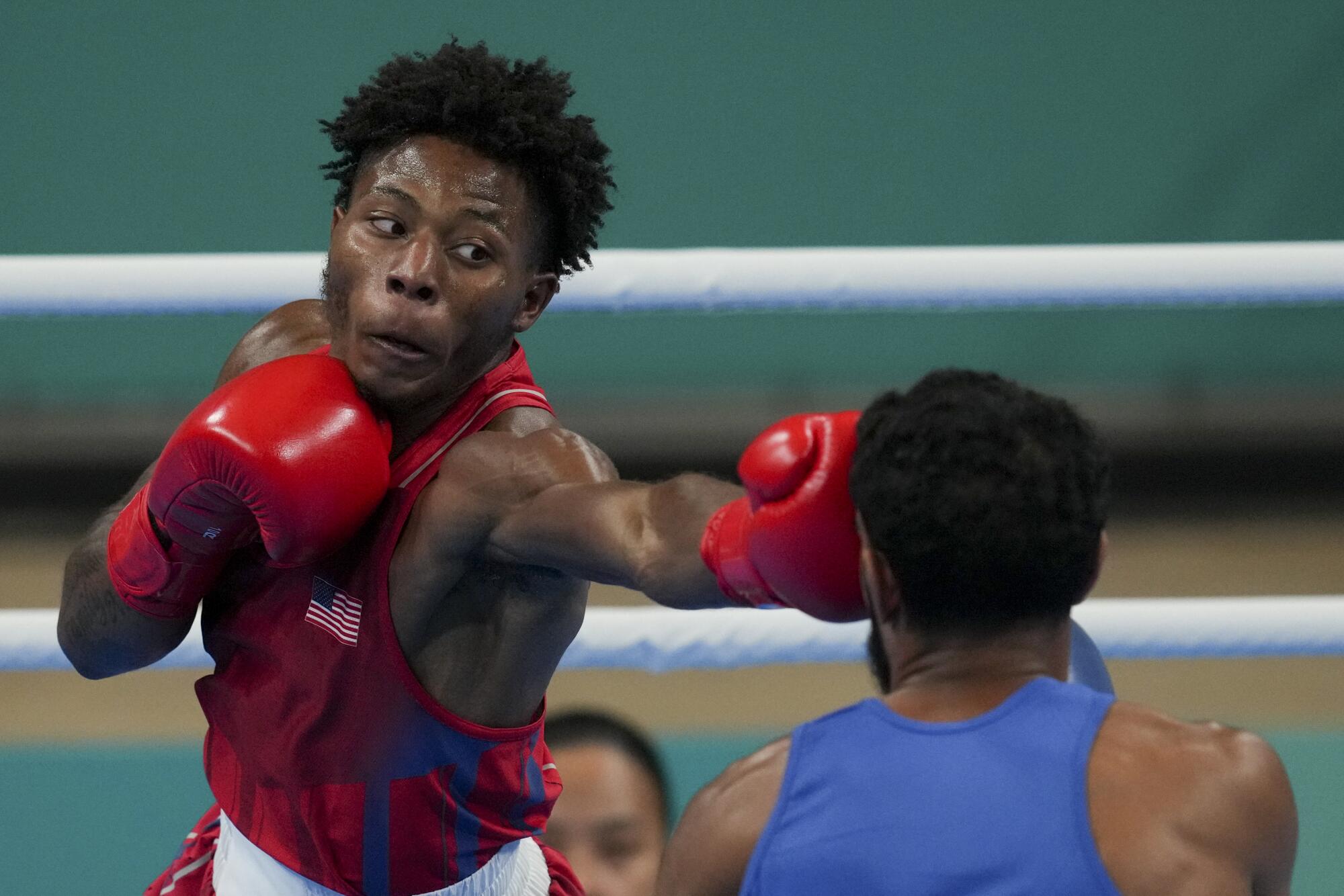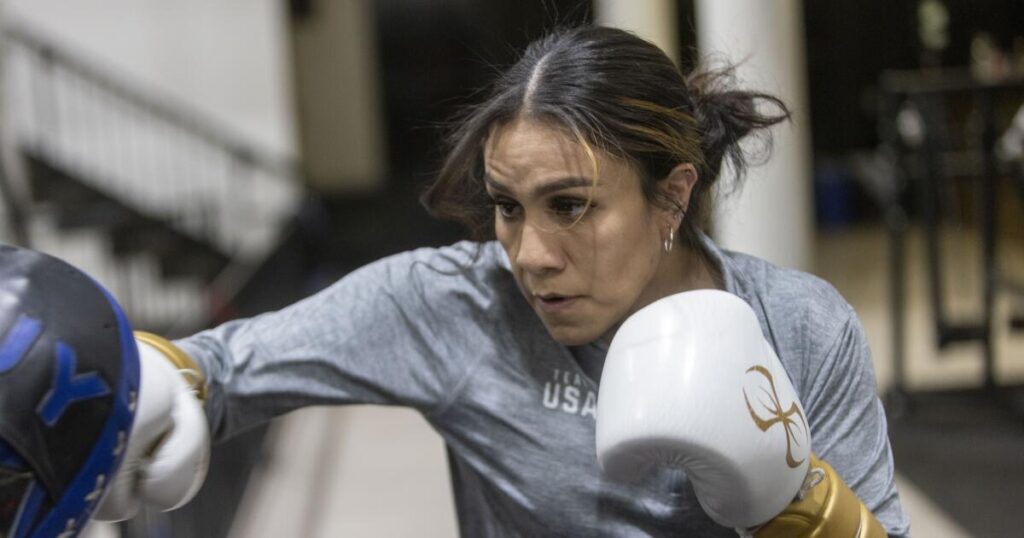There was a time when the United States dominated Olympic boxing. In the three Summer Olympics the U.S. competed in between 1976 and 1988, American athletes reached the podium in 26 of 35 events and won 17 gold medals.
Boxers who won Olympic titles and then world championships as professionals included Sugar Ray Leonard, Michael and Leon Spinks, and Pernell Whittaker.
But more recently, the U.S. has won just 10 medals since 2004, one fewer than in 1984, and the only American to win a gold medal in that span is two-time women's middleweight champion Claressa Shields.
That could all change this summer. None of the eight boxers the U.S. is sending to Paris have Olympic experience, but at least half are medal favorites. Their success will depend in large part on the draw that will determine the brackets for each weight class, which will be held the night before the first bouts.
For women's lightweight Jajaira Gonzalez and men's featherweight Jamal Harvey, their road to success in the tournament is unlikely to be any tougher than the path they took to get to Paris in the first place.
For Gonzalez, a three-time world junior champion as a teenager, the Olympics will be a chance to bounce back after a three-year hiatus.
“I was given a second chance that a lot of people don't get,” the Glendora native said, “I feel like this was destined for me. I feel like I was meant to be here.”
Gonzalez was supposed to make her Olympic debut at the Rio Olympics eight years ago, but lost to Mikaela Mayer at the U.S. Trials and then lost a split decision in the final match, missing out on the team. This marked the beginning of a downward spiral, as Gonzalez began skipping training, her mental health deteriorated and she gained 35 pounds.
She hit rock bottom when she lost her first bout at the 2018 U.S. Championships and didn't box again for more than three years.
“I had a lot of mental issues, and I just needed a break,” Gonzalez said. “I was the type of person who thought mental issues were a sign of weakness, until it happened to me.”
Gonzalez suffered from anxiety attacks, so she started seeing a therapist and keeping a journal, and slowly, she began to emerge from “a very dark period in my life.”
“I've grown so much mentally,” she said. “I feel like I'm over the worst of it, and now any little setbacks I have, I've just learned from it and it's easier for me to put it aside and keep moving forward.”
“Instead of just feeling sorry for myself and staying in a dark hole, now I'm like, 'OK, this bad thing happened, but how can I turn it into a positive?' Control what you can control and don't worry about what you can't.”

Jajaira Gonzalez trains with her father, Jose “Chuy” Gonzalez, at CAPE Fitness gym in La Verne.
(Jill Connelly/The Times)
That mindset led the 27-year-old Gonzalez to a bronze medal in the 60-kilogram (132-pound) division at the Pan American Games last fall. She began her comeback campaign at 63.5 kilograms (140 pounds), but moved back down to her original weight after finishing ninth as a super lightweight at the 2022 world championships.
Gonzalez's father, Jose, was a martial artist in his native Mexico but never forced his children to take up boxing, but when his two eldest sons became fascinated with the sport and asked their father to coach them, he decided to make boxing a family affair and invited Jajairra to join him at the gym.
Gonzalez's family is now following her to Paris, where she hopes to become the first American to medal in the women's lightweight division, but after what she's been through, just getting in the ring would be a victory.
“I never thought about not doing boxing anymore. Boxing is all I've known since I was eight years old,” she said. “This is my life. This is what I love.”
“Looking back now, I feel like maybe I was too young, looking back. Now I'm older and more mature. I feel like everything I've been through has prepared me and I feel like now is my moment.”
Harvey, who will compete at 127 pounds in Paris, was approached about boxing by his former football coach, Daryl Davis, who thought Harvey was too small for the ring but knew he was pretty good at grappling.
“My dad knew I'd fight a lot as a kid,” Harvey says. “He and my parents grew up in the same neighborhood and went to the same high school, so when I got into trouble at school, he'd say, [knew].
“Once I started coaching boxing, he wanted to transfer me.”

Jamal Harvey celebrates after defeating Cuba's Saidel Horta in the men's 57kg final at the Pan American Games in October.
(Martin Mejia/The Associated Press)
It proved to be a pretty good decision, as Harvey, who grew up in the Washington suburbs, won his first national Junior Olympic title at age 13. Five years later, he defeated defending champion Mirazizbek Mirzahalilov of Uzbekistan in the second round, then beat Olympians Samuel Kistohary of France and Serik Temirzhanov of Kazakhstan to become the first American man to win an elite world championship title since 2007.
Harvey also won a gold medal at the Pan American Games last fall, and at 21 years old, many consider him the best amateur boxer in the U.S. His Olympic teammates Joshua Edwards (super heavyweight) and Roscoe Hill (flyweight) have both won medals at international competitions and are likely to reach the podium in Paris, but Harvey is the clear favorite to win a medal.
When Davis started training with Harvey, one of the first things he taught him was that it was safer to get punched in the ring than on the football field, but Harvey didn't immediately understand that.
“I didn't look down on boxing, I was always into football,” Harvey said.
But when he got to high school, he weighed about 85 pounds, which caused him to have second thoughts.
“I just looked at my options,” he said. “Yes, I really love football, but I'm a realistic guy and I know I can be a lot more successful in boxing than I can in football.”
“I knew boxing was going to be my sport.”
But despite all his success, Harvey said his road to Paris began with three straight losses, six months after winning the world championships.
“The losses were important to hone in on the missing parts of my game,” said Harvey, who has a 59-7 record. “It didn't matter what happened in the ring, it was everything outside of the ring. Being away from my family was mentally draining. I was constantly training.”
“Once I improved my diet, my body recovered better and my performance improved.”
As Harvey grew older, he began to lose weight for the first time, so he tried a vegetarian diet but found he didn't have enough energy. He eventually added fish and found a combination that worked.
“I had to learn what foods to eat and how to get the right nutrition,” he said.

Jamal Harvey, left, throws a punch during a match against Brazil's Luis do Nascimento at the Pan American Games in October.
(Dolores Ochoa/The Associated Press)
He also began to seek greater balance between his life in and out of the ring.
” [boxing] “You create your own life,” he said. “Just enjoy it and allow it to come naturally. I've worked out a lot in the gym so I know it's OK, I can go out and watch movies and hang out with my friends.”
“A gold medal, that's what I'm aiming for. But I'm not stressing about it. I know if I work hard, I'll get it eventually. I'm just so proud of myself for even getting there.”
And if he were to become just the second American man this century to win a gold medal in boxing after Andre Ward in 2004, would he follow Ward into the professional ring and turn his hard work into a cash cow?
“If I win a gold medal, maybe I'll want to come back and be a second gold medalist,” he said.
That would be an even greater achievement: Americans haven't done it since 1904.

